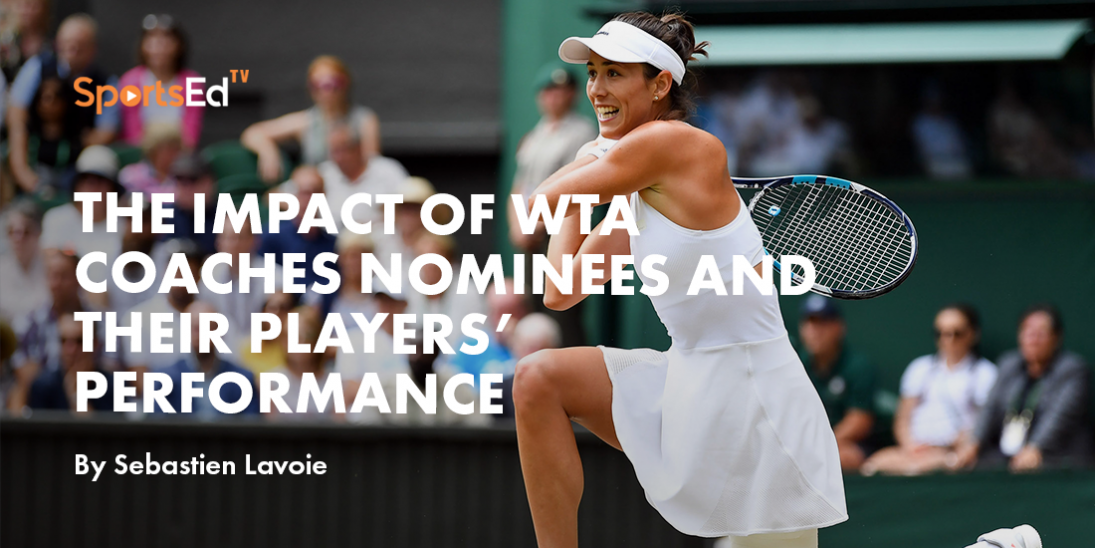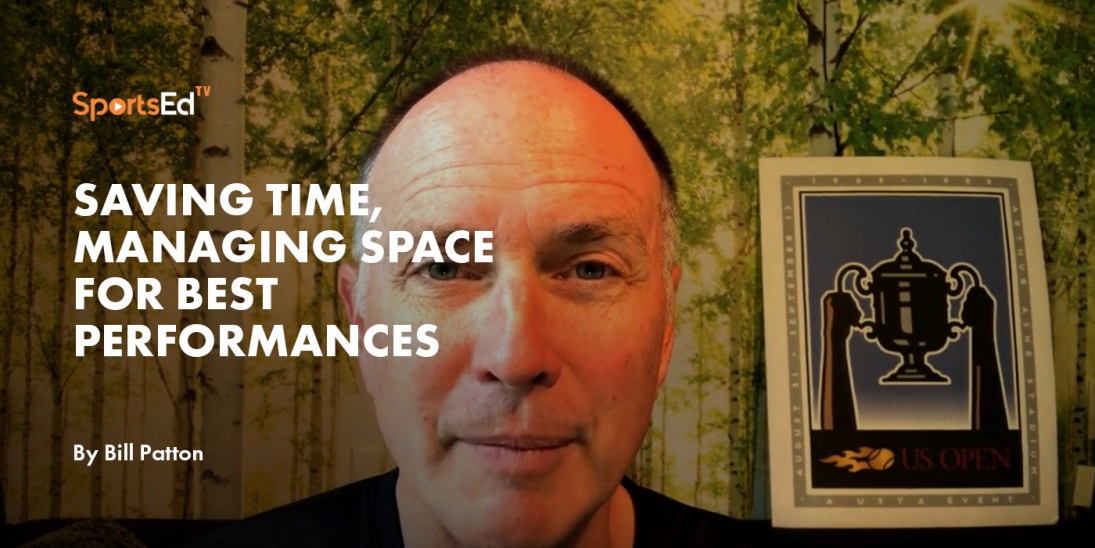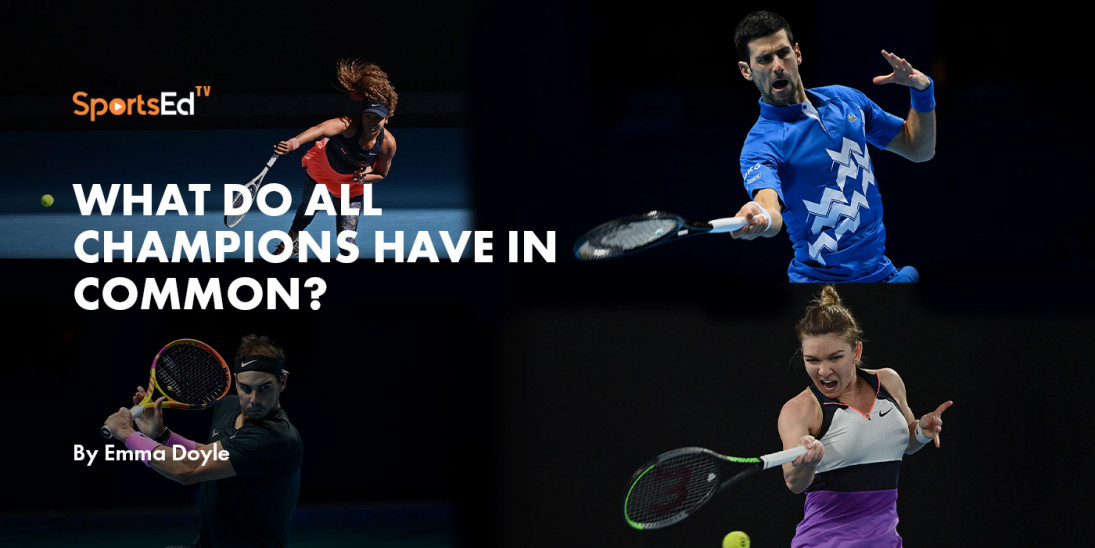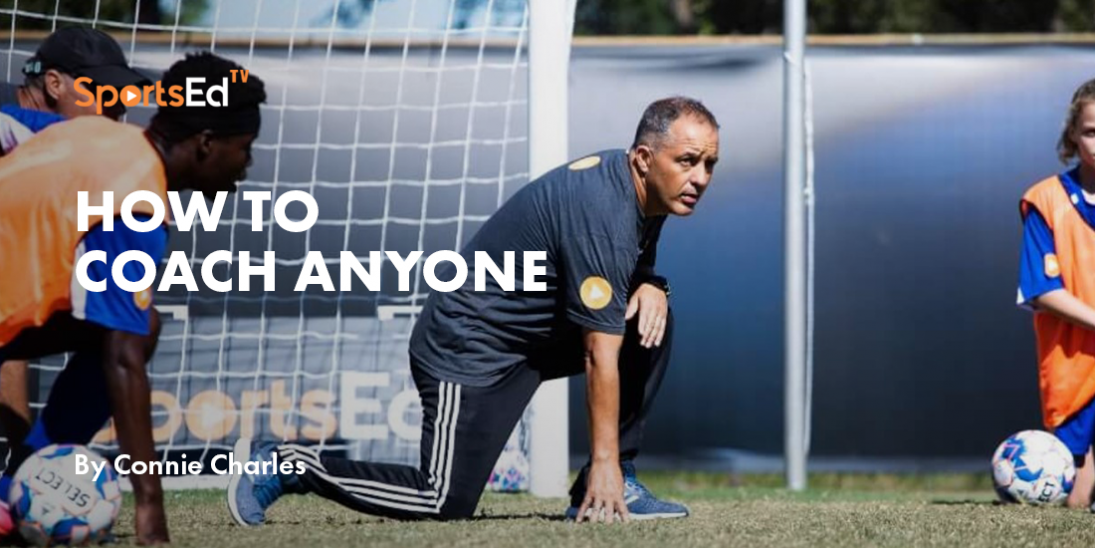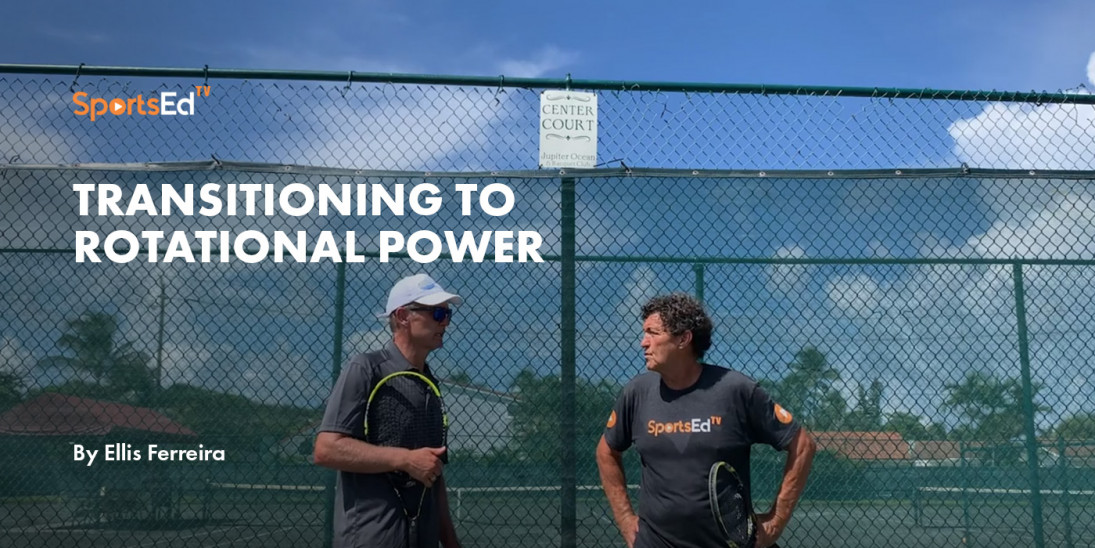Tennis
Welcome and thanks for visiting...

Pre US Open interview: Aleksandra Wozniak - Tennis Analytics Changing The Game
SportsEdTV/DDSA: Hello everyone, and welcome to this podcast. We are here for SportsEdTV. My name is Sebastian Avoir. I'm a tennis analyst with the data-driven sports analytic team. And we're going to discuss today the U.S. Open and tennis and to get a perspective on the players' view, the Koshy and also Nannerl this. I'm here today with two amazing colleagues. First of all, Aleksandra Wozniak is located in Montreal and Canada, like me. How are you today, Alex is on fire?
Wozniak: Yeah, I'm good. And you?
SportsEdTV/DDSA: Very good. Thanks, Alex. Well, Alex, so former WTA players from the mid-2007, 2008 and currently run for about one year now, the Aleksandra Wozniak Tennis Academy in Bedford, Quebec. Also with me, Shane Liyanage, principal consultant and founder of DDSA. How are you? Shane, you're located in Melbourne.
DDSA: That's right. At the other end of the day for me. But it's great to be on with the two of you. I'm really looking forward to the U.S. Open next week, but let's get into it.
SportsEdTV/DDSA: Great. So let us start, I guess, with you, Alex. I mean, you have such a rich experience on the tour. And, you know, we'd like to bring back some memories, your insight about how do you prepare for a big tournament like the U.S. Open. Do the fact it's so different time and the season change something the New York vibe does it can disturb players or not? Does it change your routine? You know, we like to have some kind of an idea have of your perspective.
Wozniak: The U.S. Open, I've played that so many times since juniors, even before being a professional. And it's such it's an amazing vibe, so much energy. And you feel like when you play on Arthur Ashe Stadium that the crowd is actually in that stadium much closer to you. So for sure, you feel like when they support you, they scream your name and they're so much closer that you feel like you're there right next to you compared to the other stadium said that like Wimbledon and French Open and the Australian Open. And it's a great feeling to play there. And it's every grand slam is special. And it just brings back a lot of good memories. I played on Arthur Ashe a couple of times already. I remember a big win against Emily Mauresmo. And the preparations for a grand slam are always like like any other tournament. But you know that you want to perform even more because it's the grand slam and the last two weeks. So you have even more time to recover. And between matches when you keep winning and their routine is very like everyone is so focused and durable and disciplined to do, like their own little patterns of practices and preparing like it's closer. You get to the tournament, the less you practice. You don't train six to eight hours a day on and off the court, but in the shorter practices. But you keep your rhythm and you play a lot of points. You know, get that competition mode on. So, yeah, and it's exciting that even though we're in this pandemic, that they're still going on with the tournaments this year.
SportsEdTV/DDSA: Well, that's a lot of nice information, just provided us. Alex now, Shane, if I turn to you, I would really like to have your perspective for her audience listening about more analytics itself and how, you know, tennis analysts that prepare for such a big event. And those demands on players and coaches change any specifics you can share with us today?
DDSA: Yeah. Yeah, sure. The reality is that in the arrangements that are all very different, we've got some arrangements where we're very hands-on. So the coach wants a lot of information and they want feedback after matches that they want their scouting of opponents. And there are other arrangements that are maybe not as hands-on, and they may be a few questions that they might ask or say the serve going in this direction. So it depends a little bit. And I'd say for the US Open, really, because of the Olympics this year, the schedules being a little bit more cramped. So there's been a lot of matches with some of the arrangements that we've had. And it's also about managing the schedule as well. So the week before, in terms of specifics, some of the things that we did base on all the hardcore data that we've had from Olympics onwards, we looked at certain patterns that have been working and certain patterns that haven't been working, and the specific players we looked at which opponents are giving them trouble. So a lot of this week has been practicing some of those patterns, making sure they choose the right things on this so they get to practice against players that they want to work on against. And then. Yeah, and then I guess that when the draw came out twenty-four hours ago, I think the focus was the first round. So they're playing are getting some data on the opponent's videos from the opponents of beign, some of the players that are playing Monday. I've spoken to all the coaches, all given them all match preparation packed basically. And then we've had questions. And then tomorrow I'll do the players that are playing on Tuesday, I do the same thing. So it gives them enough time to process. They'll come back to me with questions in the next 24 hours, potentially. And then, yeah, when Monday comes along and they play, it's I guess they see the match pulled out. I'll do a review and then hopefully they'll look for the second round.
SportsEdTV/DDSA: Oh, it's so rich in terms of that information today that we have with technology, Shane, and you know, I guess in terms of skills, what is required to perform as a tennis analyst and provide the good information? I mean, we look at data science overall is it's about first digging into the big data coding, if necessary, maybe analyzing and after communicating in the right way to players and coaches to have any insight about, you know, what's for you, the important skills to have as a tennis analyst?
DDSA: I think there's there's probably three, three sets of skills that there is the ability to have the analytical skills of having a data science background, being able to work with a lot of different data sets. So with the different players, you've got data from manually tagged coding of matches so that fish tesser on tools like that. Then you can also get data from Hawkeye or other or automatic I data capture systems. And then sometimes players are wearing GPS devices in training. So you get data from that as well. So you've got to have the skill set to be able to bring it all together and then succinctly and visualize that in a way that a coach doesn't have a lot of time or a player, that he doesn't have a lot of time to look at it. I can quickly get the information. So the analytical skills are big. I think one of the biggest skills is soft skills. So the communication being able to adapt to the different arrangements. So one of the teams that I'm working with at the moment, the coach and the players actually studying to be aeronautical engineers. So they're very, very intelligent, are very they like a lot of detail that I can contrast that arrangement to another, not a player that I'm working with who was very who loves simple things simply is a bit more free flowing autistic. So the way I communicate with those two is very different. So as the unless you have to be able to adapt and particularly soft skills and the communication on asking questions, making sure that they understand what you mean and giving them enough opportunity to be able to ask you questions, I think that that's important.
SportsEdTV/DDSA: Thanks for providing these insights, Shane. I going to turn it back to Alex because Alex had the chance to see what the U.S. Open in 2013 and during your first-round match that you want. And I'm curious, at that time, he did use data analytics. So was it available to some players at the time or did you see during your career path some kind of change or amortization and advance data to, you know, marginally increase the performance of tennis players? How was it, you know, like, let's say five years ago or 10 years ago or 15 years ago, did you see any evolution on that front? And did you use these kinds of services?
Wozniak: Actually, I wish we had this advantage that this technology now offers now, because back then, sometimes the WTA, the ITF, they would film your matches or just there's that would be a person and the computer where they would just type in your double faults, your winners in all these statistics, but not enough. The pattern is all that in detail. So I wish I had more access to what is offered today for sure because that's going to help you improve your game. And you analyze everything, your weaknesses, your strengths, and it helps you see and realize things where you can adapt and improve and get to a higher level, even played better tennis. So for sure, that is a tremendous help that we have access to this now. But I wish I had access to this back then. And for sure, it's like a transition right now for coaches and players to actually see and be able to have this technology, because before back then, you know, people didn't have enough knowledge. Same if we talk tennis or fitness-wise, everything is developed to another level in our sport, tennis now. So definitely I encourage all the players and coaches to get on this technology.
SportsEdTV/DDSA: Yeah, well, otherwise if you don't, you're in my view, you're kind of asymmetric information or disadvantage relative to players that will use such data. Of course, maybe You're in your game. Exactly.
Wozniak: You're limiting yourself, you know.
SportsEdTV/DDSA: So your perspective is very interesting, Alex. And it brings me back to Shane, because basically, Shane, what Alex is talking about is about, well, if we have data or in some quantify support, we can apply things on the floor, that we can apply things in practice. And I expect there are some issues with that in terms of I mean, in terms of challenges, because some of the findings, I assume Shane can be a quick fix or some time it's maybe something you can do more over the long run and you see progress, you know, over six, 12 or 18 months. Do you have any insight on that?
DDSA: Yeah, it looks worth a really good point. So and I guess that's one of the challenges as an analyst to be aware of. There's a lot of data and you can pull out a lot of information and certain information might be absolutely correct. But if a player's playing their match tomorrow, you can't say, okay, the data center techniques are wrong because they don't have enough time to act. And so you have to make that judgment call about, okay, that's something we leave towards, maybe an off-season or we have six or seven weeks a block to be able to do that. And then there are things like, well, you're playing a particular player, and this is the service pattern that works well against them. That's something that they can learn. And the team can practice that in the practice and applied in the match a lot easier. So, yeah, there's certainly a short, medium, and long term. And I think in terms of application and it's something that you work closely with the coach as well. I think it's very important to remember that as the data, you are the support the hero of the story, is the player and the and the and their mentor is the coach. And the data comes in to support. So while there's a lot of things that you can action, you work closely with the coach to prioritize, which are the actions that are the most important for the immediate sort of like in this week, for instance, would be the tournament. And then post the tournament, if you have six or seven weeks, then you can look at some of the medium-term actions. And then certainly at the end of the preseason, where you can start looking at some of the more long-term things that you want to change.
SportsEdTV/DDSA: Well, thanks, Shane. Alex, before we wrap it up, I would like to have, you know, your view about your transition from a player to a coach. Recently, I saw on your social media posting that the Aleksandra Wozniak Academy has been going on for a year. So how this is evolving in your head?
Wozniak: It's great it's been enough, actually a year, and since I retired in December 2018 and 2019 was a transitioning year and I knew I wanted to help. You know, it was my time to give back to the community, to help people. And I wanted to stay in some way in the tennis world. And I did my certification. And then I went on tour a bit with junior players. And it's great, you know, that I'm able just to share my expertise, my experience, and help people polish their game and bring it to another level. So actually, I see that it takes more as a coach at times to transition. You got to analyze more. You got to communicate in a way that your player understands. And you see their involvement, their progression also. So for sure, the data, it's a plus. And the coaches got to use it and actually know the timing. Right. Shane was explaining, you cannot just give it before a big match and then your player overanalyzed themselves, maybe loses their confidence because they're not they're back and it's not working out, asserted that they're doing. You get to be the coach and tell them what to do and be smart about the timing of everything.
Wozniak: So it's a lot of like like mentally know that analyzing the timing of everything. But I really enjoy being a coach. I and I would love it at this point in that because before when I played, people were saying, how do you think you're going to be a coach later? And I said, well, I, I started playing tennis at the age of three. And, you know, and I'm playing very long time tennis, and I love it. But I don't know if, you know if I'll be a good coach. And it's different because when you're a player, you listen to your coach and when you're coach, you get to communicate more, analyze more everything. But actually, I found that I really love it and I enjoy seeing on my players like progress and that you're actually helping them improve the way they want and reaching their goals. So it's very satisfying. And I really enjoy the Academy's great players come from all over the world. So it's very encouraging, you know, that I can help out in this way.
SportsEdTV/DDSA: Well, that's uh, that's very nice. I swear I can feel your passion for the game and share it with players from different levels. Shane, we need to conclude, you know, we're still in a pandemic. Maybe it's time. Yes. Tennis Analytics is a very meticulous, rigorous task sometimes. But there are also fun moments, especially for us, that if you're sports to now. You know, anything you want to share about how the to 2021 season is going. Any specific funny or fun moment that that that you want to share. We had so far.
DDSA: Yeah. I mean similar to Alex, I think I just love seeing an athlete or team make their goals and see a lot of that. And so the dreams sort of coming into fruition. That's something as a support person within the team, you're very proud that you're playing a little role for them to be able to achieve that in terms of specifics. I think there are certainly some matches that stand out. I know that Ons Januer of winning the title, becoming the first Arabic woman to win WTA titles is incredible. I'm very proud as well. For us to be working with Sabalenka, fine for her to win on clay when there was a lot of people, I think from outside were saying she couldn't play on clay for her to to be that spot in the final that was really good, loving the work. We're doing it. And while Emil Ruusuvuori is making some good progress. Yes. I mean, it's hard to just name a few. There are lots of different teams that you're happy to be a part of and providing some support too. So it'd be unfair for me to just pick out a few of them. But yeah, it's been a great year. I mean, there's still the U.S. Open and Indian Wells being moved as well. So I think there's still a lot of the seasons actually still remaining this year. So hopefully have a good finish and then really hope that Australia gets enough vaccines and the Australian Open goes ahead and Melbourne.
SportsEdTV/DDSA: Oh, I'm sure we all I guess we're able to share and connect on the many great facets of tennis ahead of this great U.S. Open hope that everyone listening enjoys this podcast. I guess it's time to wrap up and say a big thank you to all of you, Alex. Thanks again, Shane. Thank you for your time and your insight. And well, this podcast will be available on SportsEdTV and the tennis section very shortly. So, again, thanks for your time, man. Ok, enjoy.
Want your sports data to make an impact?
Get in contact with the Data-Driven Sports Analytics team today to unleash your potential.
For more data-driven sports analytics visit:

